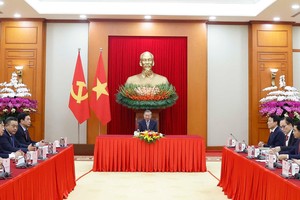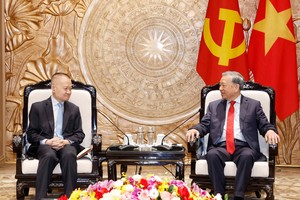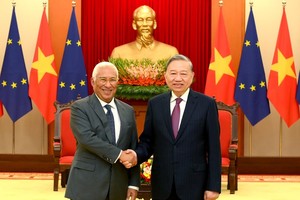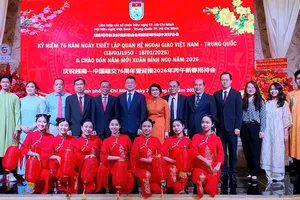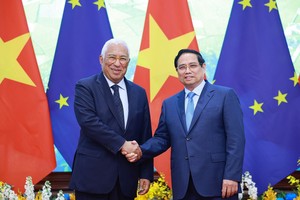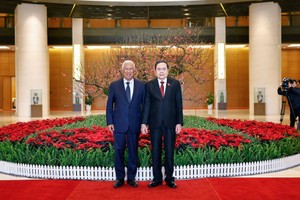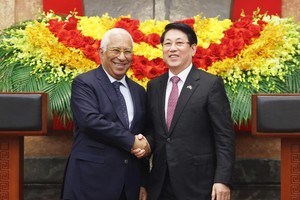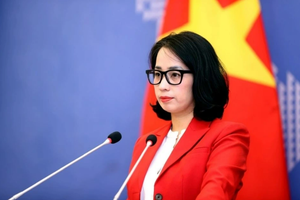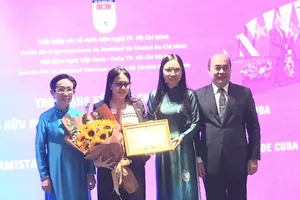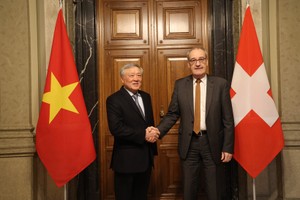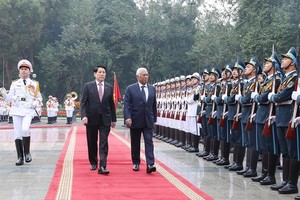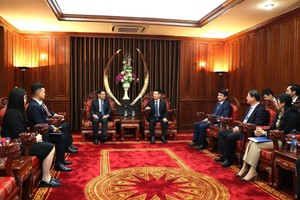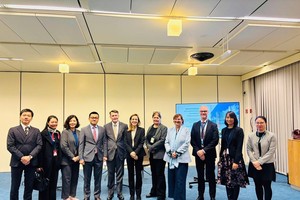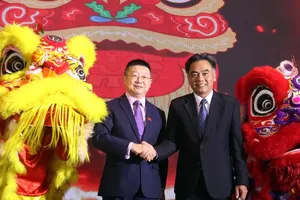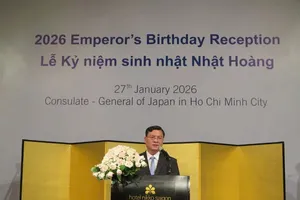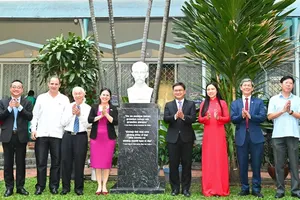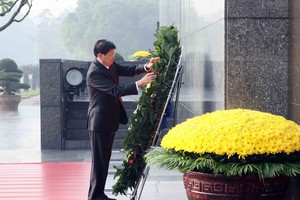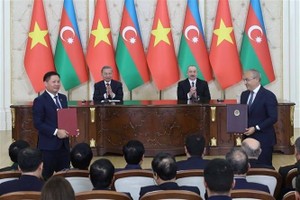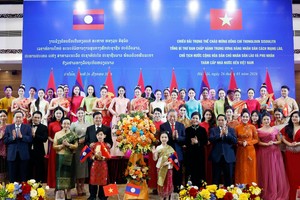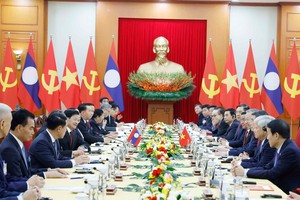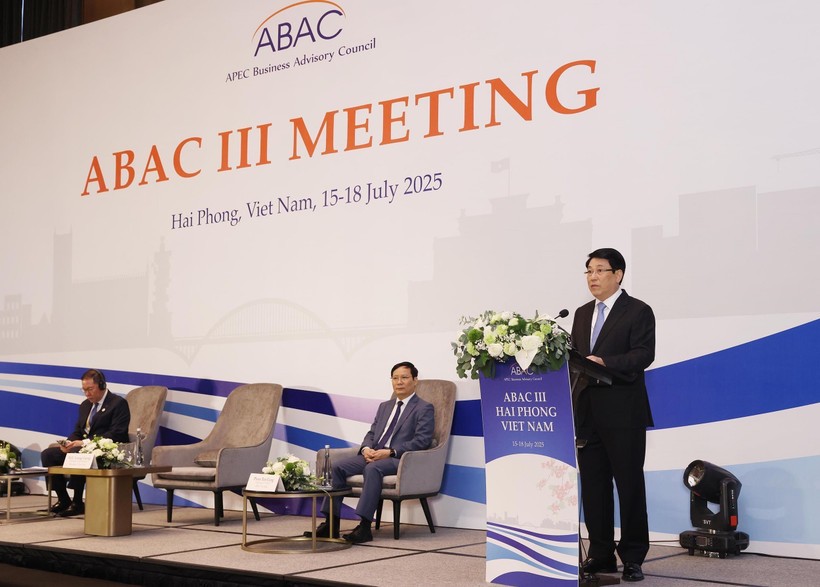
State President Luong Cuong said while addressing the council’s third meeting (ABAC III) and relevant events in the northern port city of Hai Phong on July 16.
As the official representative body of the business community within APEC and a key bridge between the private sector and APEC economic leaders, the ABAC not only proposes business-friendly policies but also plays a direct role in creating practical solutions to strengthen value chains, promote investment, facilitate trade flows, and encourage innovation.
State President Luong Cuong emphasised that throughout its 36-year journey of formation and development, the Asia-Pacific Economic Cooperation (APEC) forum has affirmed its role as a leading economic cooperation mechanism in the region, and a driving force for growth and integration, helping to ensure peace, stability, connectivity, and prosperity across the Asia-Pacific.
In the context of profound geopolitical shifts and global challenges such as climate change, extreme weather, changes in trade policies, and supply chain disruptions, he noted that multilateral cooperation and public-private dialogue are becoming increasingly important and must be elevated to a new level.
He highlighted that as the official representative body of the business community within APEC and a key bridge between the private sector and APEC economic leaders, the ABAC not only proposes business-friendly policies but also plays a direct role in creating practical solutions to strengthen value chains, promote investment, facilitate trade flows, and encourage innovation.
The State leader welcomed the ABAC’s choice to focus the discussions at this meeting on core areas such as free trade and sustainable investment, digital transformation and artificial intelligence, green finance and sustainable development, health security, and innovation in biotechnology. He emphasised that these are major priorities for Vietnam in its national development strategy through 2030, with a vision towards 2045.
The President affirmed that to achieve these priorities, Vietnam is vigorously promoting institutional reforms and improving its legal framework, while also building a transparent, competitive, and stable investment and business environment. In recent years, Vietnam has become an attractive destination for international investors, thanks to not only its market size of over 100 million people but also access to vast markets through a network of new-generation free trade agreements such as the Comprehensive and Progressive Agreement for Trans-Pacific Partnership (CPTPP), the Regional Comprehensive Economic Partnership (RCEP), and the EU-Vietnam Free Trade Agreement (EVFTA).
Vietnam has always valued its cooperation with APEC and actively contributed to the concerted efforts to realise the APEC Vision 2040 of an open, dynamic, resilient, and peaceful Asia-Pacific community for the prosperity of all people and future generations, President Luong Cuong stated, affirming that this commitment is reflected in the country’s efforts since joining APEC in 1998, and hosting the successful APEC Chairmanship Years in 2006 and 2017.
With its central role in the regional economic integration network and multilateral free trade agreements, Vietnam offers investors the advantage of diverse market access and supply chains throughout the region. Therefore, investing in the nation is not only an investment in a dynamic, stable, and rapidly growing economy but also a strategic move to connect with major and potential partners worldwide, as well as other free trade areas, he stressed.
Sharing impressive results in economic growth in 2024, including export turnover surpassing the US$390 billion mark for the first time, the President said that this year, Vietnam aims for economic growth of 8 percent or higher, helping to lay a solid foundation for achieving double-digit growth rates in the coming years.
Vietnam is committed to rapid and sustainable growth, maintaining macroeconomic stability, controlling inflation, ensuring balanced and harmonious development between the economy, society, and environmental protection, while also promoting innovation, developing a technology ecosystem, and fostering research and development centres in semiconductors, AI, and the digital economy, he said.
Identifying enterprises as a pioneering force in the national modernisation, the President noted that Vietnam has issued important policies to support the development of the private sector, especially small- and medium-sized enterprises. Those policies include support mechanisms from capital access, human resource training, digital transformation, technological innovation and investment in priority industries. This is a concrete step demonstrating Vietnam's strong commitment to creating a favourable environment and accompanying the business community in sustainable development.
He emphasised that the State and the Government of Vietnam are concertedly implementing various support mechanisms. Businesses are encouraged to increase investment in strategic areas such as renewable energy, green economy, smart cities, and high-tech agriculture. Policy dialogues between the Government and the private sector are also promoted to promptly adjust regulations to meet requirements in reality.
He affirmed that Vietnam is moving towards a future of comprehensive development, creating a foundation for enterprises to accelerate development, with a number of important goals in the fields of infrastructure, energy, digital transformation, and green and circular economy. The efforts aim to enable Vietnam to become a developed and high-income country by 2045.
Perceiving that a sustainable APEC region cannot lack close connections among businesses, the State leader called on the APEC business community to strengthen cooperation, link production chains, share technology, and improve adaptability to global shocks. He also urged organisations such as ABAC and large enterprises in the region to actively support micro-, small- and medium-sized enterprises (MSMEs) through training, technology transfer, and market cooperation so that they can participate more deeply in global value chains, contributing to the inclusive and sustainable development of the region.
State President Luong Cuong affirmed that in the coming time, Vietnam will continue to promote APEC cooperation initiatives that centre on the people, with businesses as drivers and sustainable development as the ultimate goal.
Vietnam pledges to continue to accompany ABAC in developing practical policy recommendations that accurately reflect the expectations and needs of the business community, he affirmed.
The leader said he believes that ABAC III in Hai Phong will be a forum for connecting minds, sharing visions, and inspiring innovative ideas. Recommendations and initiatives introduced at the event will be of great value in the preparation process for the dialogue between ABAC and APEC leaders in the Republic of Korea this October.
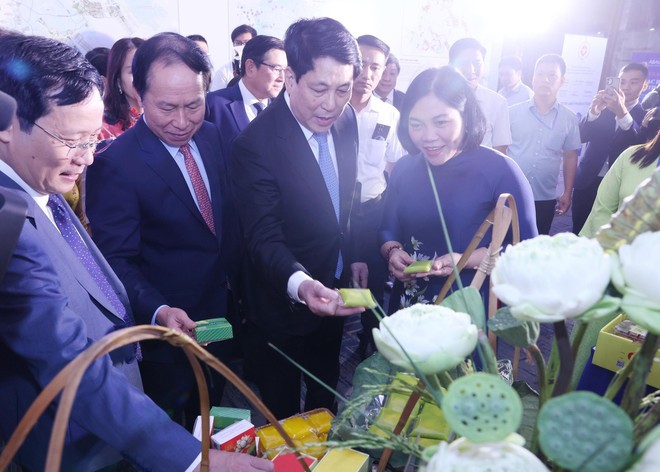
After the opening ceremony, Sate President Luong Cuong and other delegates visited booths introducing Hai Phong’s specialties, culture, and economic potential.
ABAC III, from July 15 to 18, is one of the four official annual meetings of the council, held in rotation in major cities of the 21 APEC member economies.
